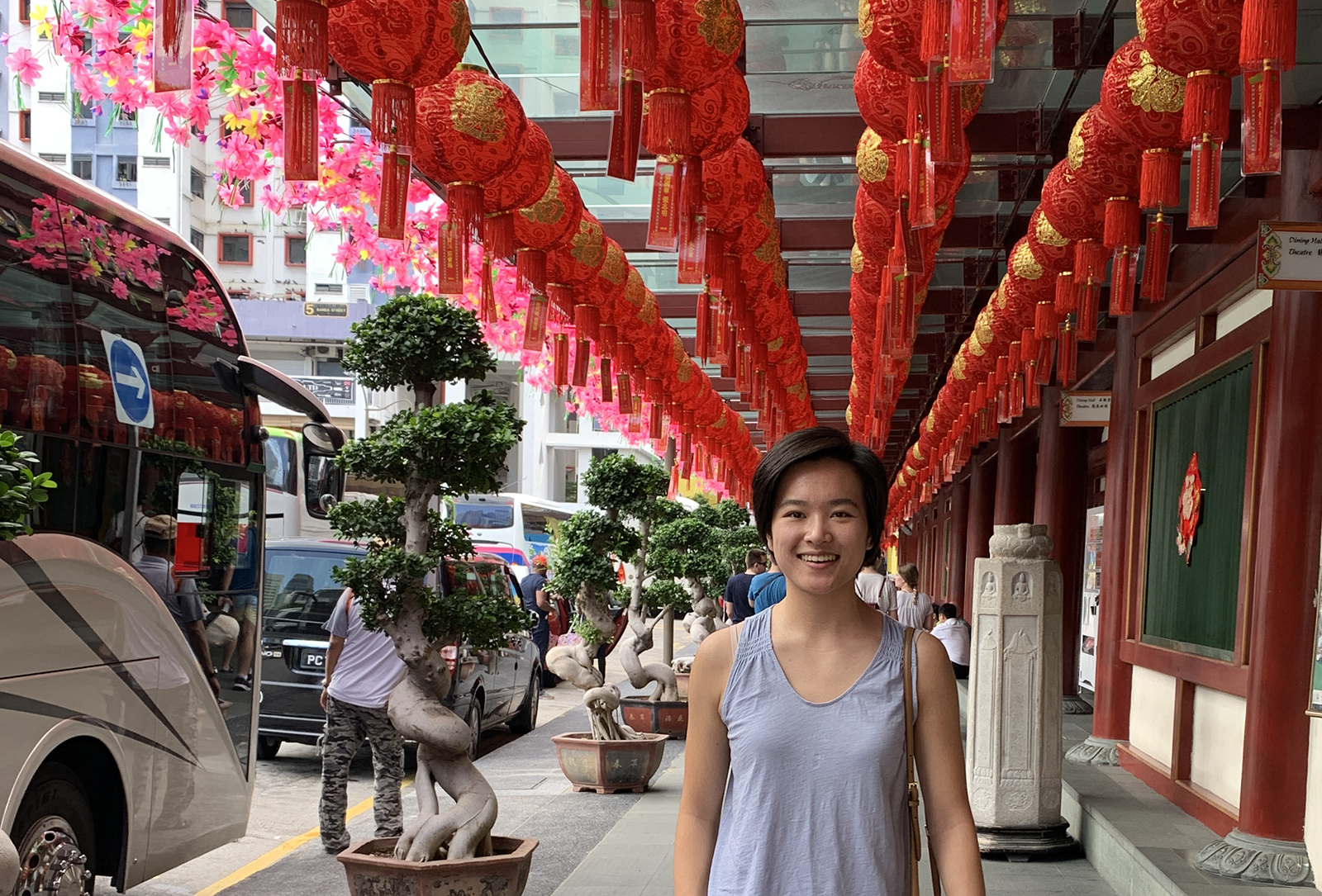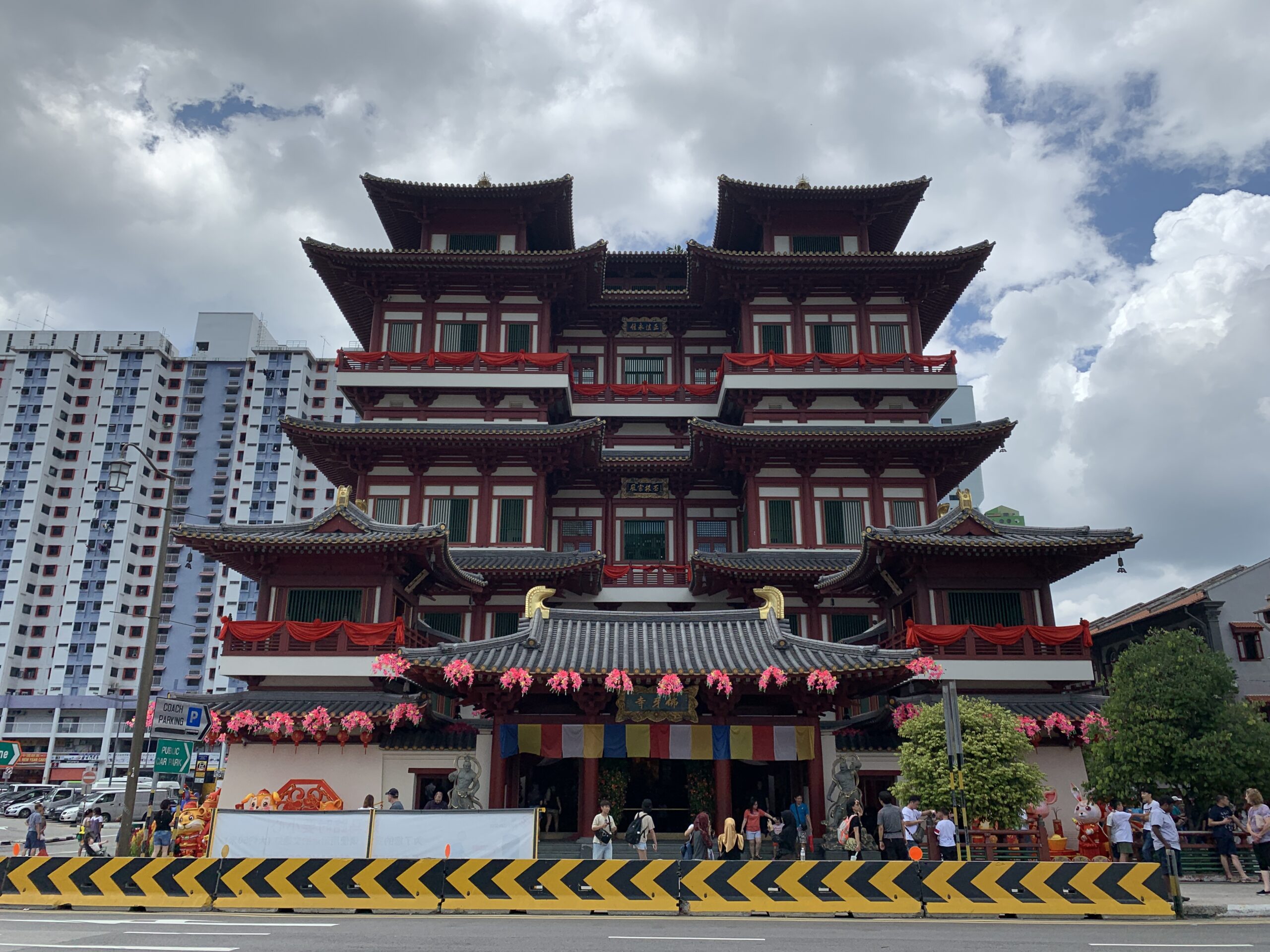Asian-American or American-Asian?
By: Jackie Shi, CAS ’21

Jackie Shi is one of the Semester Abroad Global Correspondents writing and sharing her experience abroad during the Spring 2020 semester. Follow along with the group of correspondents on our blog and look out for their student takeovers on the @pennabroad Instagram through the semester.
Semester Abroad
National University of Singapore
One of the reasons I decided to study abroad in Singapore was to experience firsthand Asian culture and to personally explore my identity of being Asian-American. Even though I’m Chinese and not Singaporean, most of Singapore’s population is of Chinese descent, and the influence of the ethnicity can be clearly seen throughout its population and culture. For instance, Mandarin is the second most frequently used language in the country after English and Chinese New Year is a huge holiday in Singapore with celebrations that span across several days.
I experienced less of a culture shock coming to Singapore than I expected. When I arrived, I was immediately surrounded by people who looked similar to me and for the first time in my life, I wasn’t a minority. Things that I used to do only at home, such as picking chopsticks as my first choice for a utensil, are normalized and common here. I’m not met with stares and weird glances when I decide to eat “gross” foods like chicken feet or tripe, but everyone around me is eating it too. People don’t ask me to amuse them by “saying something in Chinese,” but I regularly use the language here to order food and talk to locals. I found myself adjusting quickly to the culture here because the norm consisted of things that I’ve done my entire life.
As I’ve been able to explore much more of my Asian identity, I’ve also encountered many situations that have made me very aware of my nationality and how as an American, I’m still an outsider. My friends here always jokingly mock me about America’s stubbornness against the metric system and how instead of kilometers, we use football fields to describe how long things are. When I try to talk about how hot the weather is, no one understands me when I say it’s 90 degrees out, but I have to say it’s 32 degrees Celsius. To my surprise, I apparently have an accent and I’ve been interrupted from talking during class multiple times by professors asking me where I’m from.
I realized that being American especially shapes my thoughts in the realm of politics. As a political science major, I was excited to come to the National University of Singapore and learn about Singapore’s politics, as the country governs very differently than the United States. I’ve found myself engaging in heated debates and thought-provoking conversations with not only local students but other exchangers as well. While some students claimed that Singapore’s structured and orderly society was beneficial for the country, I pondered about how Singapore’s paternalism could be considered an infringement on human rights and freedoms. I questioned them on how despite being a democracy, Singapore straddles on the verge of authoritarianism with many of its policies. In return, my peers and I have also talked about how dysfunctional American politics could be and I thought about how many of Singapore’s politics could actually benefit America.
While being Asian shapes a lot of my habits and physical traits, I realized that being American molds much of how I think and view the world. By coming from a Chinese background, I’ve inherited a rich and vibrant culture—one that has its own unique set of traditions and some really amazing food. But also, many of my values and beliefs are from what I’ve learned from growing up in America. My dual identity of being both Asian and American has oftentimes made me feel like I don’t belong in either sphere but studying abroad has taught me the importance of not only embracing but celebrating the intersectionality of my own identity.

The Semester Abroad (SA) program offers undergraduate students the opportunity to study in a new global community through extended study for a semester or year. Penn Abroad partners with top institutions around the globe and collaborates with Penn’s undergraduate schools to offer programs for students across academic disciplines.